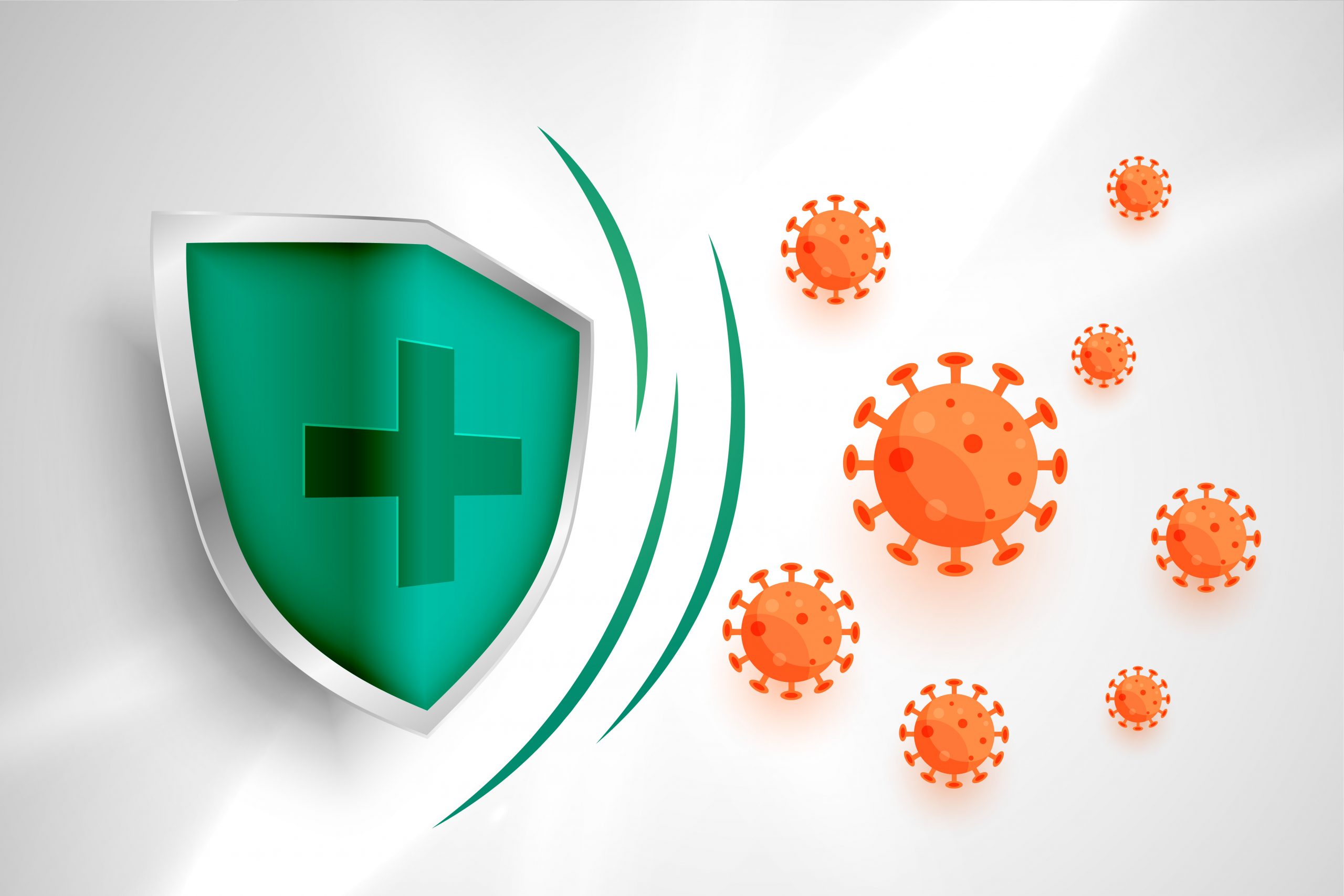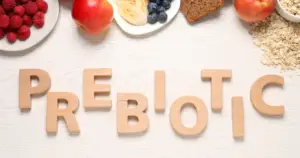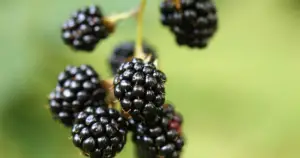What to Eat When You Have COVID: Ultimate Covid-19 Nutrition Guide

A complete COVID-19 guide for nutrition. Learn how to have healthy and nutritious meals during COVID.
Globally, as of 25 August 2021, there have been 213,050,725 confirmed cases of COVID-19. Those who’ve been affected by COVID-19 know that one of the most common symptoms is a severe lack of appetite. This can quickly lead to weight loss and unnecessary health complications.
This blog will focus on the best foods you can eat during the COVID 19 pandemic and also foods to eat if you have a COVID infection.
Foods to Eat During COVID-19
It is a known fact that no food or dietary supplement can prevent COVID-19. However, by eating the right foods in the right amounts, we can keep our immune system strong enough to fight off COVID-19 or any disease for that matter [1].
- Cereals and Millets: Choose Whole grains and millets instead of highly processed options. Incorporate millets like finger millet, pearl millet, sorghum millet, etc into your routine.
- Protein, Protein, and Protein: Have a protein source in each major meal. You can incorporate pulses and legumes, soy-based products like tofu, milk, and milk products, and non-vegetarian sources like eggs, fish, and poultry.
- Fruits and vegetables: It is important to have at least one fruit a day and good amounts of vegetables- including green leafy vegetables every day.
- Nuts and Oilseeds: Nuts like almonds, walnuts, pistachios, groundnuts, seeds like sunflower seeds, pumpkin seeds, etc can be very beneficial if taken in adequate amounts on a day to day basis.
- Fluids: Keep yourself hydrated at all times, have antioxidant-rich teas like green tea or herbal teas.
Things to Eat While Having Mild COVID-19 Infection
If you’ve been diagnosed with COVID-19, the first thing to do will be self-isolation, in a separate room with proper ventilation.
Nutrition plays a crucial role in maintaining the body in a proper state to defend against the virus. So, it is mandatory to have a balanced diet rich in vitamins, minerals, and antioxidants [2].
1. Have small frequent meals:
Loss of appetite is one of the common symptoms of COVID-19 infection. Have small meals at frequent intervals so that you get enough calories and also avoid gastric discomfort.
2. Calories:
It is important to have energy-dense food to get enough calories to meet the increased caloric demands in fever, for increased work of breathing muscles, and keep your body up and going.
So, if you are addicted to counting calories for every bite you take, you might want to let go of that habit.
Include calorie-dense foods like dry fruits, nuts, and whole grains in adequate amounts to ensure you get enough energy.
3. Protein:
Having adequate proteins is very important to prevent muscle loss, enhance the strength of respiratory muscles, thereby promoting cough and expectoration and to help you get out of bed.
Make sure that you increase your intake of Branched-chain amino acids (BCAAs) and you get at least 50% of total protein is high-quality protein i.e. animal protein like
- Eggs
- Milk or Whey protein
- Poultry
- Meat
- Fish
4. Fats:
A variety of cooking oils can be used in rotation, like
- Groundnut oil
- Til oil
- Rice Bran oil
- Soybean oil
- Canola oil etc.
Fats rich in Medium-chain triglycerides like ghee, coconut oil can also be used in moderation.
Foods rich in Omega-3 fats, especially EPA and DHA must be included in your diet to boost immunity and decrease inflammation. Some foods rich in omega 3s are-
- Walnuts
- Flax seeds
- Chia seeds
- Fatty fish like salmon, mackerel, sardine, etc.
5. Vitamins and Minerals:
Increased intake of fruits and vegetables is necessary to improve antioxidant status in the body and also to meet the increased demands of vitamins and minerals.
- Fruits like orange, guava, pineapple, apple, watermelon, etc. can be given
- Fresh Vegetables including green leafy vegetables must be given in abundance.
6. Fluids:
It is of utmost importance to stay hydrated even if you don’t feel thirsty. A variety of liquids like buttermilk, dal water, lime water, and unsweetened fruit juices, etc can be taken to avoid taste fatigue.
To help relieve cough and sore throat: Prefer warm fluids like
- Vegetable soup,
- Chicken soup,
- Ginger water,
- Teas like- honey ginger tea or any other herbal teas.
Teas with honey, ginger, turmeric, sage, oregano or cinnamon, etc can be beneficial for sore throat.
What to limit/Avoid:
Cut down empty calories
- Limit oily, deep-fried foods
- Limit simple sugars and sweets
- Limit salt intake
- Limit highly processed foods
- Avoid tobacco/ alcohol
- Also, avoid overfeeding
In addition to having a proper diet, ensure that you get enough sleep, do light exercise or practice daily yoga and maintain proper sanitary practices.
Healthy Eating and the Immune System
Omega-3-fatty acids, Vitamins, and minerals like Vitamin A, Vitamin C, Vitamin E, Vitamin B6, Folic acid, Selenium, Zinc, Iron, Copper, all play an important role in maintaining our immune system [3, 4, 5].
All the above-mentioned nutrients are found in foods we consume on a day-to-day basis. But often we can’t get the right amount of vitamins and minerals from our diet alone.
In such cases, you can consult a doctor or dietitian and fill the nutrient gaps with a multivitamin supplement. You can choose a multi that suits your needs like multivitamins for men or multivitamins for women.
Healthy Meal and Snack Ideas During the COVID-19 Pandemic
You can make a number of healthy meals and snacks keeping in mind a few basic guidelines like
- Use less oil
- Limiting salt
- Using fresh minimally processed ingredients
Check out these easy and healthy snack ideas
- Bake your chips using a vegetable of your choice like sweet potatoes, carrots, celery, etc with a teaspoon of olive oil and herbs.
- Make a dip for your chips or veggies using Greek yogurt or cottage cheese with dried herbs and spices.
- Blend a smoothie with dates, nuts, and a fruit and milk of your choice.
- Make your own trail mix by combining dry fruits, nuts, seeds, and maybe even some dark chocolate.
- Slice up a fruit like an apple and eat it as is or have it with some homemade nut butter.
As for meals,
- Make millet porridge with millets, vegetables, spices, water, and a teaspoon of oil for sauteing
- How do you like your eggs? Soft boiled, hardboiled, poached, scrambled, sunny-side up? Eggs come in handy as a high protein snack or you can just toss in some cooked veggies, make a veggie omelet and serve it with toast.
Even better just make a bowl of simple egg rice with eggs, rice, onions, herbs, and ginger garlic paste.
Tips for Grocery Shopping During the COVID-19 Pandemic
First things first, If shopping offline, before you go out grocery shopping, [6]:
- Check for local regulations
- Plan your shopping outside ‘peak hours’
- Always wear a mask, carry a sanitizer with you and maintain social distancing
- Make a list so you can cut short your shopping time
Plan and Shop only what you need
It is also important to only shop for 1 to a maximum of 2 weeks groceries at a time. Hoarding food not only causes temporary food shortages but also storing foods for long periods of time- especially perishable and semi-perishable foods cause nutrient losses and even food spoilage, which ultimately leads to food wastage.
Make use of online grocery shopping and food delivery platforms if possible.
Food to Buy During the COVID-19 Pandemic
- Always go for fresh produce: Choose fresh fruits and vegetables over preserved ones
- If you are going for canned fruits, go for fruits canned in juice, instead of syrup- Better to cut down on empty calories!
- Frozen fruits and vegetables are also a good idea if there aren’t fresh ones available or if you are looking to store them for a while.
- Choose nourishing and shelf-stable food. Dried fruits, whole cereals, millets, and pulses have a comparatively longer shelf life and are also healthy options.
- Get enough nuts and seeds like groundnuts, walnuts, chia seeds, sunflower, flax or pumpkin seeds, etc.
- Get shelf-stable milk, perfectly suitable for those infrequent grocery trips.
- Get 3 different seed and vegetable oils for cooking and keep in rotation.
Healthy Takeout During the COVID-19 Pandemic
- Stay physically active- Do Exercise, yoga, or any type of moderate physical activity
- Increase your intake of fruits and vegetables.
- Stock up on healthy snacks so you don’t reach for that bag of chips yet again
- Practice good food hygiene
- Have fiber-rich foods and probiotic-rich foods
- Stay Hydrated
- Limit salt to 5g/day
- Limit deep-fried and oily foods
- Avoid highly processed foods
- Limit eating out, instead enjoy home cooked meals with your family
- Avoid Alcohol and Tobacco
Nutrition Advice for Adults During the COVID-19 Outbreak
Choose fresh, minimally processed foods
Have fresh fruits, vegetables, and legumes. We know you have a busy life and bread is your go-to, but swap it for healthier options like oats, millets, brown rice, etc.
Eat at least 2 cups of fruit, 2 cups of vegetables, 180g of cereals or millet, 160g of meat, legumes, and pulses per day.
Don’t forget to hydrate!
Drink 8 to 10 glasses of water per day. And stop overdosing on caffeine. It is your ‘nth cup of coffee already!
Go stretch a little.
We all are stuck to our computer screens for so long, it might as well be a part of our body. But it is extremely important you take breaks in between, walk around, move your body a little. Because nutrition is nothing without physical activity.
Have less salt and sugar
Let’s not get into the gory details of what happens if you take excess salt and sugar. Choose homemade unsweetened fruit juices instead of store-bought ones. Read the nutritional label before you pay for yet another bottle of soda or fruit concentrate.
Get enough protein from plant and animal sources- milk, meat, eggs, pulses, legumes, you know the drill.
Wrapping Up
Your nutritional status depends on a number of factors- like your age, sex, lifestyle, medications, health status, etc. Maintaining a healthy balanced life – regular physical activity, proper nutrition, and following COVID-19 guidelines- wearing masks, sanitizing, social distancing is the only sustainable way for us to survive and beat this pandemic.
References:
- “Maintain a healthy diet during the COVID-19 pandemic” National Health Portal (2021)
- Aman, Faseeha, and Sadia Masood. “How Nutrition can help to fight against COVID-19 Pandemic.” Pakistan journal of medical sciences vol. 36,COVID19-S4 (2020): S121-S123.
- Shakoor, Hira et al. “Immune-boosting role of vitamins D, C, E, zinc, selenium and omega-3 fatty acids: Could they help against COVID-19?.” Maturitas vol. 143 (2021): 1-9.
- Bae, Minkyung, and Hyeyoung Kim. “Mini-Review on the Roles of Vitamin C, Vitamin D, and Selenium in the Immune System against COVID-19.” Molecules (Basel, Switzerland) vol. 25,22 5346. (2020)
- Story, Michael J. “Essential sufficiency of zinc, ω-3 polyunsaturated fatty acids, vitamin D and magnesium for prevention and treatment of COVID-19, diabetes, cardiovascular diseases, lung diseases, and cancer.” Biochimie vol. 187 (2021): 94-109.
- “Shopping for Food During the COVID-19 Pandemic – Information for Consumers” US Food and Drug Administration (2021)
![Blue Foods List [with pictures]](https://keevs.com/wp-content/uploads/2023/03/Blue-Foods-List-with-pictures-300x158.png)






